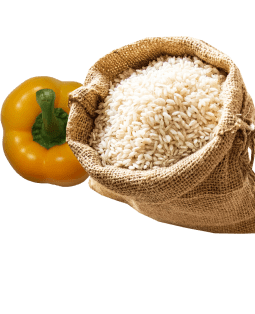October 13, 2022 (Ecuador) —Today, the Harvard Law School Food Law and Policy Clinic (FLPC) and The Global FoodBanking Network (GFN) released a new analysis of food donation laws and policies in Ecuador as well as recommendations on how Ecuadorian leaders can help reduce food waste, feed people experiencing food insecurity, and combat climate change. The analysis and recommendations are part of The Global Food Donation Policy Atlas, which maps laws and policies affecting food donation around the world.
Approximately 900,000 tons of food in Ecuador is either lost or wasted annually, most of which could be redirected to Ecuadorians experiencing hunger. About 33% of the population experienced food insecurity between 2018 and 2020, an almost threefold increase from 2014 to 2016. Hunger especially affects children–Ecuador has the second-highest level of chronic childhood malnutrition in Latin America, experienced by 23% of children under five and by about 27% of children under two. Redirecting safe, edible food away from landfill can not only help address these devastating trends but can also reduce greenhouse gas emissions.
Earlier this year, Ecuador passed a new, groundbreaking law to help solve these critical challenges, titled Law to Prevent and Reduce Food Loss and Waste and Reduce the Hunger of People in Vulnerable Situations (“FLW Law”). The law addresses food loss and waste across the supply chain while encouraging food donation, leveraging key recommendations that FLPC and GFN have developed to support food donation in other countries around the world. The new research released today identifies three policy opportunities for Ecuador to strengthen its food donation policies even further, including:
“We commend Ecuador for its leadership in addressing food loss and waste and food insecurity through the recent FLW Law,” said Emily Broad Leib, clinical professor of law at Harvard Law School and faculty director of FLPC. “Our research shares actionable guidance designed to further support food donation in Ecuador, and our work in collaboration with Ecuadorian partners and stakeholders demonstrates that elected officials and policymakers have the power to address these seemingly intractable problems.”
“We live in a mega-diverse country, surrounded by fertile land that provides us with an abundance of all kinds of fruits and vegetables,” said Dr. Alicia Guevara, founder of Banco de Alimentos Quito. “We have so many products available that waste has become a habit. Sadly, our beautiful country ranks second in chronic child malnutrition in the region. We, who know that we will have food on our table tomorrow, must act in favor of those whose daily concern is access to their next meal.”
“An estimated 702-828 million people are facing hunger globally, and that number is likely to rise as food price spikes, supply chain issues, and climate change continue to strain our food systems,” said Lisa Moon, president and CEO of The Global FoodBanking Network. “Food banks help ensure more people have access to food while also reducing food loss and waste. Strong food donation policies are absolutely critical to this work—they help food banks serve their communities in the most effective and efficient way.”
The Global Food Donation Policy Atlas, supported by Walmart Foundation, identifies existing laws and policies that support or hinder food recovery and donation in a comprehensive Legal Guide and offers Policy Recommendations for strengthening frameworks and adopting new measures to fill existing gaps. The analysis featured in these country-specific reports is also encapsulated in an interactive atlas tool that allows users to compare policies between countries participating in the project.
Atlas project research is available for 20 countries: Argentina, Australia, Canada, Chile, Colombia, Costa Rica, the Dominican Republic, Ecuador, Ghana, Guatemala, India, Indonesia, Kenya, Mexico, Nigeria, Peru, Singapore, South Africa, the United Kingdom, and the United States. An interactive map, Legal Guides, Policy Recommendations, and Executive Summaries for each country are available at atlas.foodbanking.org.
###
About The Harvard Law School Food Law and Policy Clinic
The Harvard Law School Food Law and Policy Clinic (FLPC) serves partner organizations and communities by providing guidance on cutting-edge food system issues, while engaging law students in the practice of food law and policy. FLPC’s work focuses on increasing access to healthy foods, supporting sustainable production and regional food systems, promoting community-led food system change, and reducing waste of healthy, wholesome food. FLPC is committed to advancing a cross-sector, multi-disciplinary and inclusive approach to its work, building partnerships with academic institutions, government agencies, private sector actors, and civil society with expertise in public health, the environment, and the economy. For more information, visit chlpi.org/flpc.
About The Global FoodBanking Network
The Global FoodBanking Network supports community-led solutions to alleviate hunger in nearly 50 countries. While millions struggle to access enough safe and nutritious food, nearly a third of all food produced is lost or wasted. We’re changing that. We believe food banks directed by local leaders are key to achieving Zero Hunger and building resilient food systems. For more information, visit foodbanking.org.
About Banco De Alimentos DiakoníaBanco de Alimentos Diakonía’s mission is to reduce hunger in vulnerable areas across Guayaquil, Ecuador. For more information, visit www.facebook.com/Bcoalimentosgye.
About Banco De Alimentos QuitoBanco de Alimentos Quito is based in Quito, Ecuador and has a mission to be the bridge between abundance and lack of food. For more information, visit https://baq.ec/.
